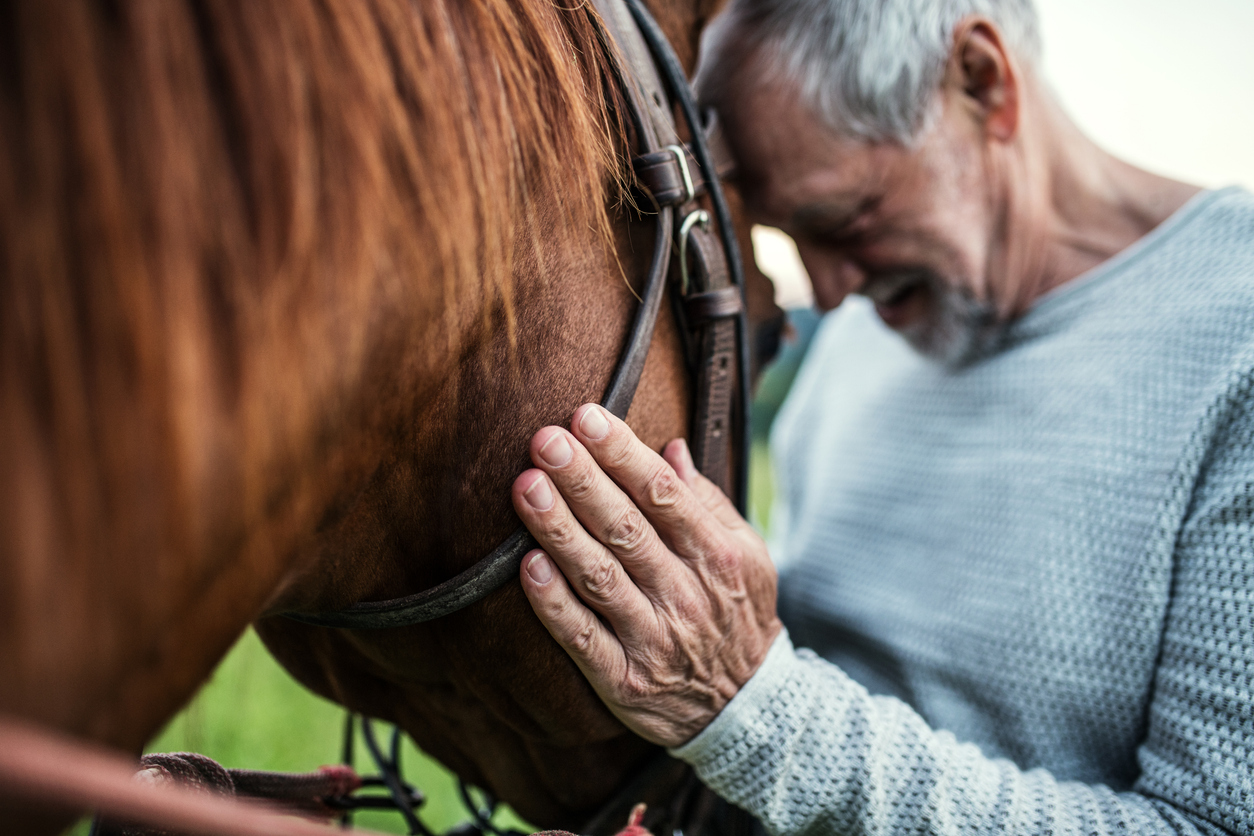Corliss Wallingford was inspired to start a therapeutic horse riding center in her home state of Virginia after her daughter, who is non-verbal, joined a similar program.
For 19 years, Simple Changes Therapeutic Riding Center in Mason Neck, not far from Washington, D.C., has offered what its co-founder describes as “science-backed equine-assisted activities” to people of all ages with different disabilities. Wallingford said she’s seen profound changes in people with dementia as well.
Equine-assisted services encompass activities like horseback riding, adapted acrobatic activities to mimic the horse’s movements, grooming, caring for and interacting with horses. Researchers are taking notice of the potential benefits, including scientists working at the dementia program at the UC Davis Center for Equine Health and elsewhere.
The use of horses in therapeutic treatment is still understudied. A few studies show that interacting with horses may improve the mental and physical health of people living with dementia, but more research is needed to confirm these effects. It is hard to say whether the benefits come from interacting with the animals or from being engaged in a physical, shared social activity.
Wallingford used to work as a speech writer for Fortune 500 executives. The work she does now, she said, is surprisingly not so different: helping people express themselves.
“I created a program that utilizes both receptive and expressive language to help improve quality of life,” she said. “Specifically with this population of people living with Alzheimer’s, dementia, and the related-anxieties that derive from that, how frustrating would that be to have lost your ability to communicate?”
Equine-assisted activities can help people connect the physical movements from riding a horse to their own body. When participants can’t ride the horse physically, Wallingford uses the animals to show a connection between specific movements, offering words of encouragement like, “This is how we sit on our horses. We have to make sure both those bottom cheeks are engaged on the back of the horse. Can you find that in your wheelchair?”
Beyond this aspect, being outside on the farm offers its own benefits. Contact with nature has been shown to reduce symptoms of mental health conditions that commonly co-occur with dementia: depression and anxiety.
Plus, activities are usually performed in groups, and group activities have been proven to promote social interaction and even reduce dementia risk.
“In the beginning, it would surprise me that people from the same nursing home facility would come out and they had actually never met their neighbor. People feel better when they’re connected, so I try to facilitate that in the moment,” Wallingford said.
Rather than relying solely on verbal communication from her participants, Wallingford aims to find creative ways to help people express themselves. She leads groups to watch how the horses interact and then engage in a group activity like painting the horses or writing haikus about the interaction.
Various forms of art therapy may benefit mental health. However, it hasn’t been well studied in the context of dementia: A 2018 study concluded that more high-quality studies are needed to figure out whether art therapy works.
Wallingford said recognizing that each person living with Alzheimer’s has a unique experience with the disease has helped her tailor-make her services for each participant.
“It’s all part of taking the tragedy out of the narrative,” she said. “Life is going to change but how can we find joy in that? How can we find a different way of looking at this?”













